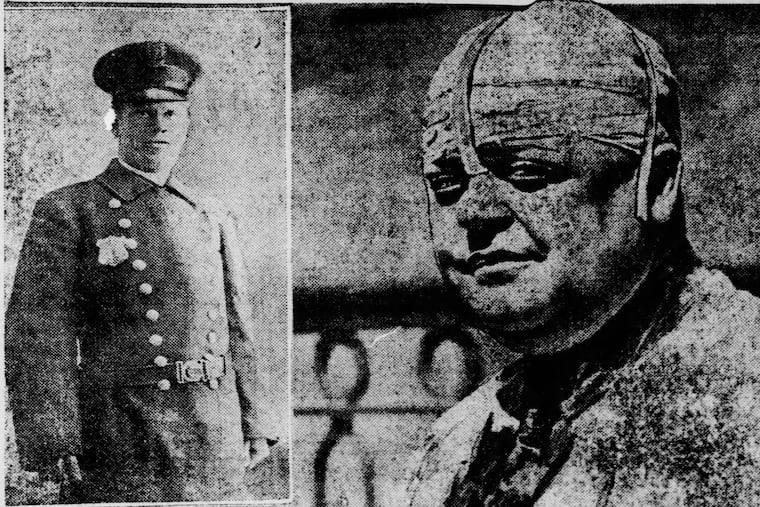This week in Philly history: Philly police officer killed during election day attack on political candidate
Two warring factions within the city’s Republican political machine hit a fever pitch.

In the run-up to a heated primary election in September 1917, the “Bloody Fifth Ward” was described as a smoldering political volcano, back when now-posh Society Hill was a rough and violent political battleground.
Two warring political bosses within the city’s Republican political machine were nearing a fever pitch. One faction put forward Issac Deutsch as a Council candidate, and another supported James Carey, setting the stage for an ugly eruption.
And on the morning of the election, Sept. 19, 1917, Carey and Assistant District Attorney John H. Maurer walked along Sixth Street, headed toward a nearby polling place.
After turning the corner at Delancey Street shortly after 10 a.m., about a half-dozen gangsters, whom Deutsch supporters brought down from New York, were waiting.
“Hello, boys!” Carey said, according to The Inquirer. “How are things going?”
Both men were attacked. Jacob “Butch” Mascia whipped out a revolver, pointed it at Carey, and pulled the trigger.
The weapon misfired, and in the ensuing melee, Carey was hit over the head with a blackjack.
When Officer George A. Eppley intervened, helping Carey to his feet, Mascia fired at Eppley’s back.
The seven-year veteran staggered and collapsed in front of the McCall Elementary School and in full view of playing children. He died not long afterward.
After the shooting, the nerves of civic leaders, residents, and officials, already stretched to the breaking point, held at high tension until long after the polls closed.
Clergymen and leading citizens made demands for the arrest and impeachment of Mayor Thomas B. Smith, an ally of the group supporting Deutsch. Many claimed Smith interfered with the election and used the city’s police department to bully voters at the polls.
In the end, Carey won the primary, and the seat on the Select Council. The gunman, Mascia, was convicted of second-degree murder later that year. Deutsch and six police officers were found guilty of conspiracy. And Smith was also was charged with conspiracy, but was acquitted.
The murder prompted citizen protests and ushered in a new generation of reformers, who would go on to defeat the party’s machine candidates.